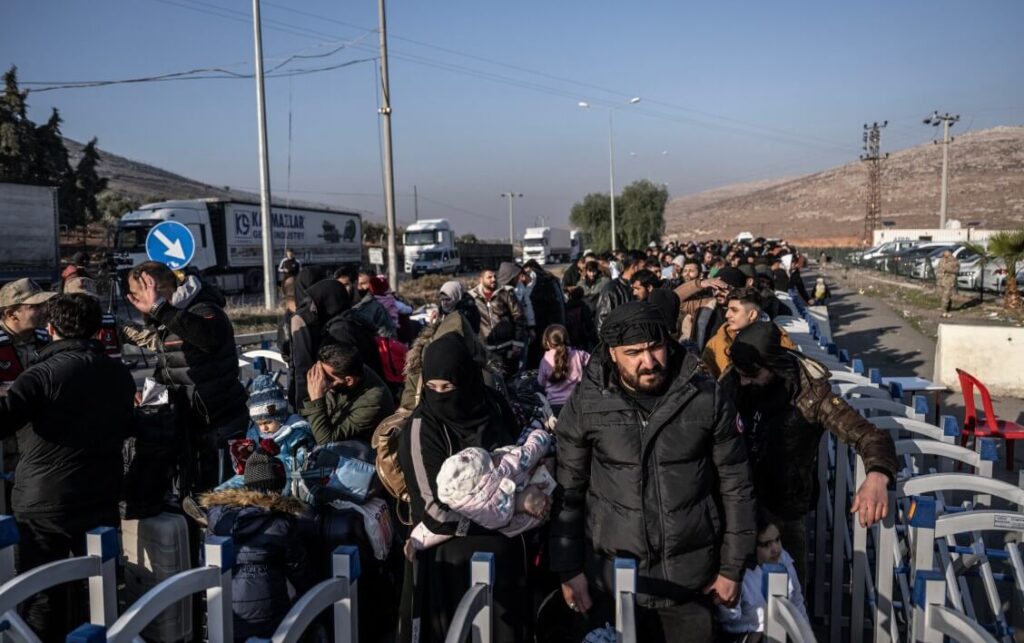Turkish President Recep Tayyip Erdoğan urged the European Union to support new projects facilitating the return home of Syrian refugees following the regime change in Syria, the Gazete Duvar news website reported.
Speaking at a joint press conference with European Commission President Ursula von der Leyen on Tuesday, Erdoğan criticized the international community for failing to adequately support Syrians over the past 13 years of war.
“The international community did not provide sufficient support while Syria faced mass atrocities,” Erdoğan said. “The way to address this is by contributing to Syria’s reconstruction and stability.”
Erdoğan also underlined the need for new EU-backed initiatives to encourage voluntary refugee returns. “We implemented many joint projects with the EU during this 13-year humanitarian crisis. Now, we await new projects to make refugee returns a reality,” he said.
The meeting came amid intensified diplomacy following the recent collapse of Syrian President Bashar al-Assad’s regime, ending decades of rule by the Assad family. Assad’s swift ouster followed a rapid offensive led by the Islamist group Hayat Tahrir al-Sham (HTS), which has reshaped Syria’s political and humanitarian landscape.
The United Nations estimates that up to 1 million displaced Syrians may return home within the first half of 2025. While celebrating Assad’s removal, UN officials have urged caution. “It is too early to determine safety,” said Rema Jamous Imseis, Middle East and North Africa director for the UN refugee agency, emphasizing that no one should be forced to return.
Von der Leyen acknowledged Turkey’s central role in managing the refugee crisis and praised its longstanding efforts. “Turkey has hosted millions of refugees since 2011, and the EU recognizes this critical partnership,” she said, announcing an additional €1 billion ($1.09 billion) in funding for 2024 to support refugees and host communities. Von der Leyen also indicated the EU’s top diplomat would soon return to Damascus to engage in Syria’s rebuilding process.
In Turkey, domestic pressure on the refugee issue has mounted. Özgür Özel, leader of the main opposition Republican People’s Party (CHP), reiterated calls for ending temporary protection status for Syrians. “It is time for Syrians to return home. There is no Assad regime, no justification for staying here,” Özel said, while also criticizing Erdoğan’s handling of relations with the EU.
Turkey currently hosts over 3 million Syrian refugees, more than any other country. Erdoğan’s government has maintained that voluntary returns are essential for regional stability, yet opposition parties argue for accelerated repatriation, citing economic and social strain.
Meanwhile, concerns remain about Syria’s fragmented governance and humanitarian conditions. Despite hopes sparked by Assad’s fall, over a million people were newly displaced within Syria in recent weeks.
Erdoğan stressed that EU-Turkey relations must be strengthened to address these challenges, calling for progress on updating the customs union agreement and easing visa requirements for Turkish citizens. “Turkey and the EU need a stronger relationship now more than ever,” Erdoğan said.
The EU has provided over €10 billion ($10.9 billion) in refugee aid since 2011 as part of joint migration management agreements with Turkey.

